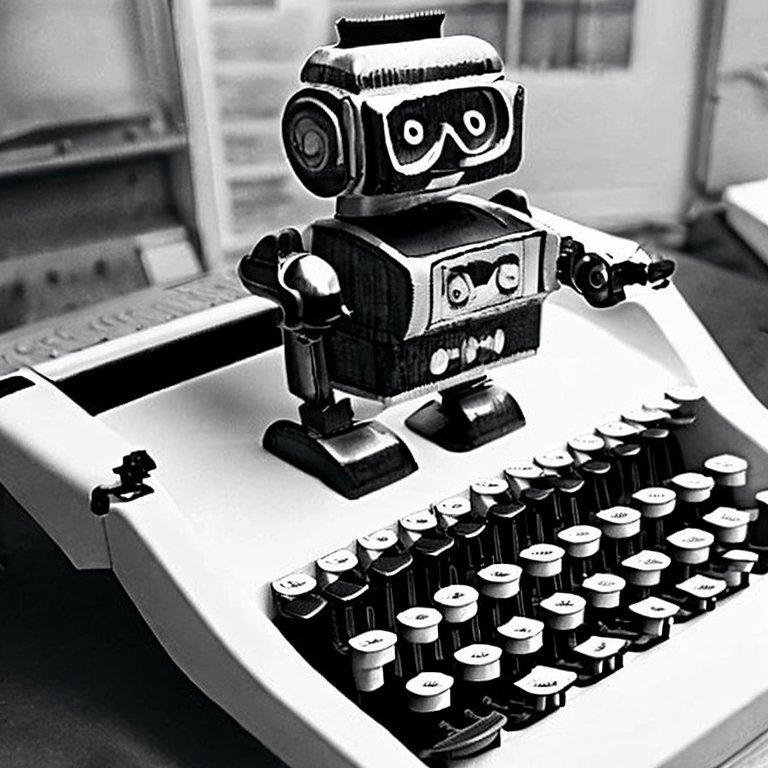While the number of stories about bots writing articles is increasing, you’re wondering if computers will replace journalists. The answer, at least for the time being, is no.
First of all, artificial intelligence still needs to be able to produce complex news stories. There are several major companies, including Meta and Google, for which the industry-leading bot fail to write quarterly earnings reports because the reports contain too many subtle nuances for the computer to handle.
During 2021, MSN reported replacing around fifty journalists with artificial intelligence to curate news stories. Many have warned that this is a slippery slope, but most bots’ work is simple editorial tasks. Experts agree that gathering from sources and writing news will continue to be done by humans.
At least for the time being, bots must stick to the basics. And this is favorable, not detrimental to human journalists. Suppose a news outlet puts a robot in charge of writing simple, somewhat dull stories like quarterly earnings, box scores, and weather reports. In that case, human journalists can concentrate on more interesting, creative, and nuanced stories.
By no means do today’s limitations of bots take away the risk of them replacing human journalists sometime in the future. As the bot of AP first began drafting articles, every story was scrutinized by a human editor, who would correct and record errors to improve the program. The AP started publishing artificial intelligence stories without human intervention three months later.
Ultimately, the media, artificial intelligence, and technology have created exciting new fields of science and technology. But journalists are not doomed. As the lines between bots and journalists become increasingly blurred, the time will come when both fields can thrive simultaneously. An ethical conflict between human journalists and artificial intelligence is currently unfolding. As artificial intelligence capabilities continue to grow, journalists will find new ways to improve how the media works and add unique aspects to the reporting process.
Rather than getting rid of journalists, artificial intelligence can improve journalism by allowing journalists to focus on their jobs and adding new ways to tell stories. To learn more about the ethical conflict between humans and artificial intelligence, read The Future of Journalism by Geoffrey Stone and Douglas McIntyre.
When asked if robots will replace journalists, the answer is still yes, in the long run. But at least for now, the threat of artificial intelligence stealing journalism jobs from humans is still far away.

Jordan Promlle, a journalist and editor at Barkey Sheets, is strongly interested in the ethical conflicts between humans and artificial intelligence. In his writings about ethics in journalism, one of the articles states:
Although robots can create tasks faster and better than any human, at the same time, some questions remain to be answered. An algorithm can make you produce something better than a human could have done, but it can still break the news. In the same way, an algorithm can improve the cost of making a living by calculating and generating a wage and taking care of business.
Journalists need to realize that artificial intelligence will only work differently today. Eventually, artificial intelligence will make decisions in ways that are beyond the purview of humans. These decisions will impact human lives, as well as our overall economy. We must be prepared to accept these decisions or accept the possibility that robots could undermine journalism.
Consider a practical example: when algorithms are used to determine whom and how to arrest, robots can decide who lives and dies. If the police choose not to press charges against the accused, the consequences could be life-threatening.
In addition, your livelihood is at risk in the case you are charged with a crime based on flawed intelligence. You could lose your job and your house, even your freedom, because the information that the police used to set you could later be proven false or inaccurate. In this case, the decision of the police to charge you would put your life at risk.

Many ethical dilemmas and questions still need to be solved. Suppose artificial intelligence continues to improve and become a dominant force in our society. In that case, journalists need to think about the ethical decisions that artificial intelligence will make and devise ethical frameworks that ensure that it and humans work together as best they can.
This is an original article published exclusively by Jacker Magazine. We encourage and welcome your feedback. Feel free to leave a comment below. Do not hesitate to contact us if you have other questions, suggestions, or proposals. We look forward to hearing from you.
Share this article

